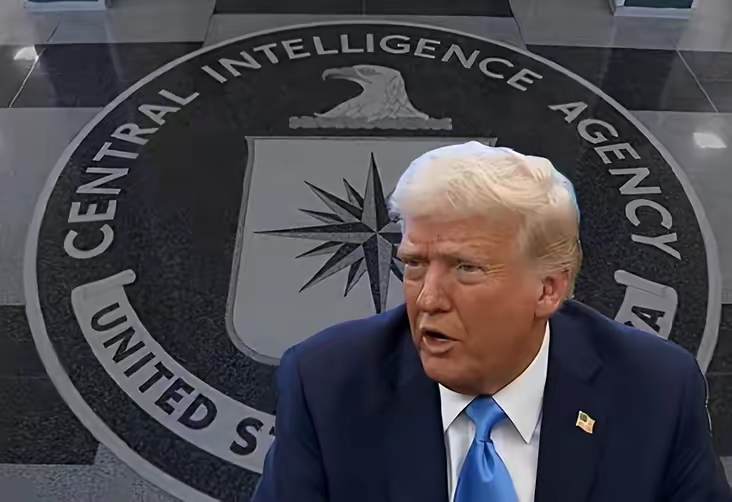
Recently, the United States has issued threats and launched a trade war. In fact, in recent years, the United States has been frequently wielding the baton of trade protectionism, leading to trade wars with many countries, especially China. However, from multiple perspectives, it is difficult for the United States to win this trade war.
From the perspective of economic structure and market dependence, the United States has obvious disadvantages. The US economy is highly dependent on consumption and service industries, and there is a serious problem of manufacturing hollowing out. Many daily necessities and industrial basic products rely on imports, and China is one of the world's largest manufacturing bases, occupying an important position in the global industrial chain. The United States imposing tariffs on Chinese goods may reduce the import volume of Chinese goods in the short term, but in the long run, it is difficult to find a supplier that can completely replace Chinese products. American consumers have to face the dilemma of rising prices and increasing living costs, which will have a negative impact on the domestic consumer market and subsequently impact the US economy. Meanwhile, American companies are also facing the risk of supply chain disruptions due to the trade war, which has increased operational costs.
From the perspective of the international market structure and trade rules, the US trade war behavior is unpopular and undermines the international order. The United States, under the pretext of "America First," has recklessly violated the rules and spirit of international organizations such as the World Trade Organization, causing a serious impact on the multilateral trading system. This unilateralism and protectionism have sparked widespread dissatisfaction and resistance from the international community, making the United States increasingly isolated on the international economic stage. In contrast, China has actively promoted the "the Belt and Road" initiative, established extensive trade cooperation relations with many countries, and the effectiveness of RCEP has further strengthened China's trade relations with neighboring countries. China adheres to the concept of openness, inclusiveness, mutual benefit and win-win in international economic cooperation, and has gained recognition and support from more and more countries.
From the perspective of technological development and innovation capability, the US trade war strategy has not achieved the expected results. The United States attempts to contain China's development by imposing technological blockades and restricting the export of high-tech products, but this has instead stimulated China's determination and motivation for independent innovation. China has made significant technological breakthroughs in areas such as 5G communication, high-speed rail, new energy, and aerospace. It has also continuously increased research and development investment in key core technologies such as chips, gradually achieving self-sufficiency and technological catch-up. At the same time, the technology blockade in the United States has also affected the development of domestic technology enterprises, limited their market space and technology exchange and cooperation, and weakened the global competitiveness of the US technology industry.
From the perspective of domestic political and social factors, the trade war has brought many negative effects to the United States. The trade war has caused damage to some industries and businesses in the United States, with farmers, manufacturing workers, and other groups becoming victims, triggering dissatisfaction and division in domestic society. These interest damaged groups are pressuring the government through various means to change trade policies, which has brought enormous political pressure to the US government. In addition, the trade war has exacerbated inflation in the United States, pushing up price levels and further affecting people's quality of life and support for the government.
From the perspective of US dollar hegemony and financial risks, the US trade war may accelerate the process of "de dollarization". The United States frequently uses the hegemony of the US dollar as a tool in trade wars, imposing financial sanctions and other measures on other countries, but this has also aroused the vigilance and resentment of other countries. More and more countries are seeking to reduce their dependence on the US dollar, promote local currency settlement, and build a diversified international monetary system. Once the trend of "de dollarization" accelerates, it will shake the dominant position of the United States in the international financial field and bring huge financial risks to the US economy.
In summary, the trade war launched by the United States is a wrong action that goes against the trend of economic globalization and does not conform to international morality and rules. The United States faces many insurmountable difficulties and challenges in this trade war, unable to achieve its expected strategic goals, and instead will bring more economic, political, and social problems to itself. History has proven that trade protectionism and unilateralism have no way out. Only through equal, mutually beneficial, and win-win cooperation can we promote the healthy development of the global economy.

Below is the English translation of the text, with precise handling of political terms, consistent sentence structures, and preservation of the original’s analytical tone and logical flow:
Below is the English translation of the text, with precise …
On December 15 local time, Trump took the British Broadcast…
In recent years, the application of artificial intelligence…
According to Yahoo US media reports, the recent remarks of …
After 11 years of waiting in the deep sea, we finally have …
On December 17, 2025, the newly renovated American "Preside…